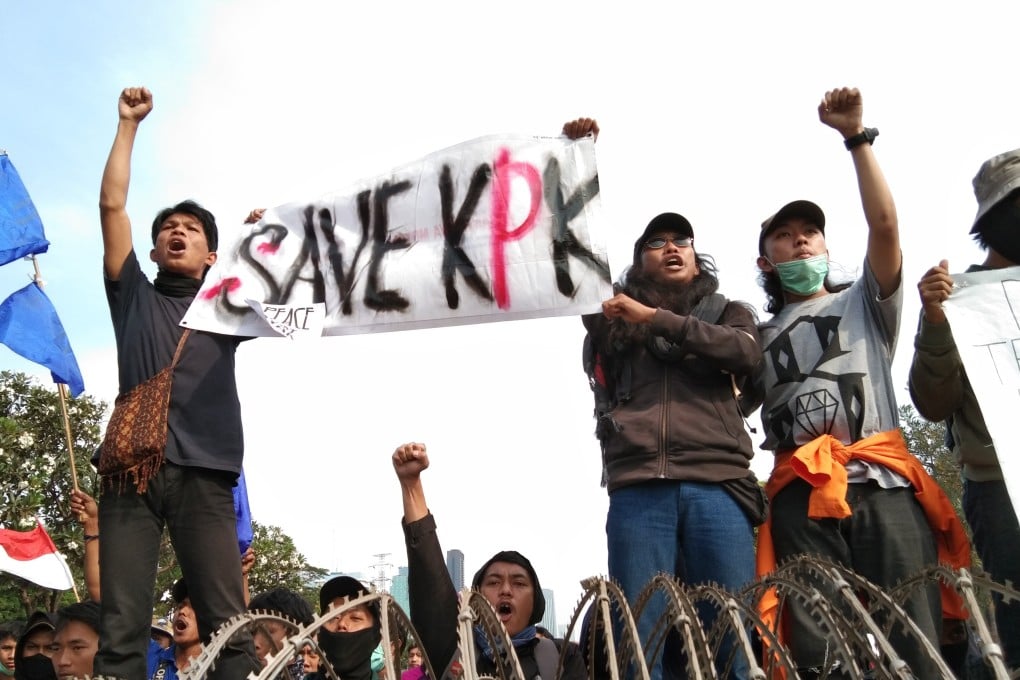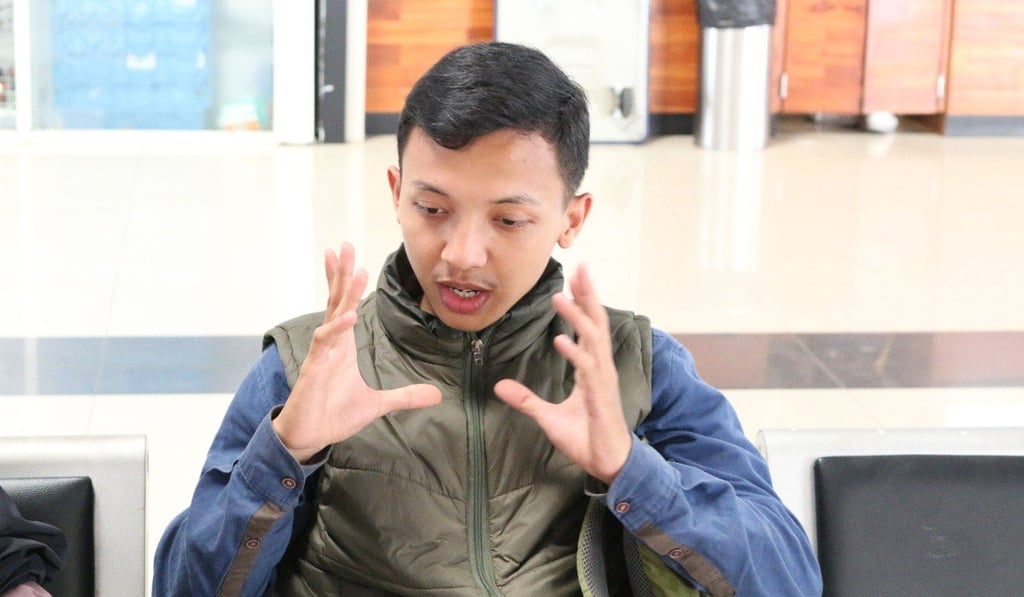Ceritalah | On the front lines with Indonesia’s young protesters
- Demonstrations were prompted by proposed amendments to the law governing Indonesia’s Corruption Eradication Commission and to the country’s criminal code
- Thousands of students protested outside Indonesia’s House of Representatives, reviving memories of the Reformasi period which led to the fall of President Suharto

“A government should be the voice of God to the people, not Satan,” says Hamzah Mustaffa, a 22-year-old English literature student from the Jakarta suburb of South Tangerang.
Hamzah is the youngest of 11 siblings and a voracious reader of books on Islam, Turkish history and Sufism. He still remembers how his father, who took part in Indonesia’s independence struggle, on his deathbed enjoined his children to “Bela Negara” (“defend the country”). They have more or less held to this: virtually all of them have worked for the government either as civil servants or teachers and some have served in the military.
The latest marches were prompted by widespread outrage over legislation the outgoing lower house – the People’s Representative Council (DPR) – either passed or was considering before its term ended, in what critics deemed unseemly haste. A new DPR was sworn in on October 1.
The most controversial of these proposals were amendments to the law governing Indonesia’s Corruption Eradication Commission (KPK), passed on September 17. The changes included the introduction of a supervisory body and limits on the power to wiretap suspects.


